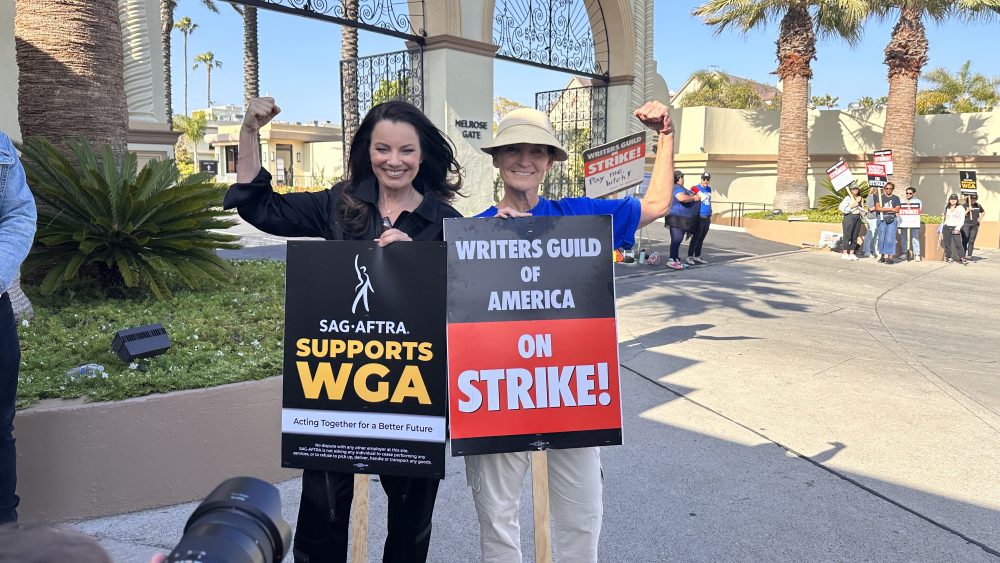SAG-AFTRA Calls for Strike Authorization Vote
SAG-AFTRA announced Wednesday that it will hold a strike authorization vote as it seeks to get its “ducks in a row” ahead of June 7 negotiations with the major studios.
The vote does not mean that the performers’ union will necessarily join the Writers Guild of America on the picket lines after its contract expires on June 30. In a press release, the union said its negotiating committee decided that a strike authorization would provide “maximum bargaining leverage” for the talks.
“We must get all our ducks in a row should the need present itself,” SAG-AFTRA President Fran Drescher said in the release. “The prospect of a strike is not a first option, but a last resort. As my dad always says, ‘Better to have and not need than to need and not have!’”
The Alliance of Motion Picture and Television Producers, which represents the studios, declined to comment.
In 2017, the performers’ union threatened to call a strike authorization vote as talks got close to the deadline. At the time, the union said that the AMPTP was seeking “outrageous rollbacks.” The two sides ultimately reached a deal without the guild having to call the vote.
SAG-AFTRA also obtained a strike authorization during negotiations on the 2018 TV animation contract. In that case, more than 98% of the voting members approved the authorization, and the parties reached a deal two months later.
This time around, there will be only three weeks between the beginning of negotiations and the June 30 contract expiration. Taking a strike authorization vote now may be a way to gain leverage without having to lose time at the bargaining table.
Drescher has appeared on the WGA picket lines, and has expressed her support for the writers’ strike, which began on May 2. But she stirred controversy among some of her membership last week when she suggested, to Deadline, that SAG-AFTRA and the WGA have different issues.
“I don’t think what’s very important to writers — and I’m a writer too in the WGA — is the kind of stuff that we’re going after,” Drescher said. “Although I’m very empathic for their needs to be honored, I feel like our conversation is going to be very different. And I feel very hopeful that maybe we won’t get to this point.”
SAG-AFTRA is looking at some of the issues that have been important to writers, including wage increases to address inflation, a higher streaming residual and protections against artificial intelligence. The union is also looking to address the move to “self-tape” auditions, which many performers find costly and burdensome.
In the release, the guild said that given the array of issues, “the outlook for working actors becomes unsustainable without transformative change.”
SAG-AFTRA represents 160,000 performers.

